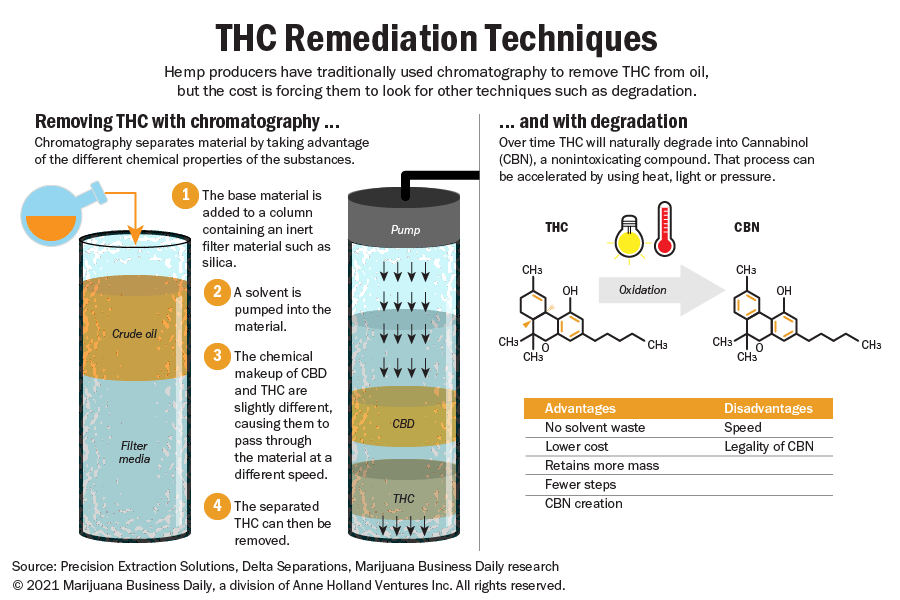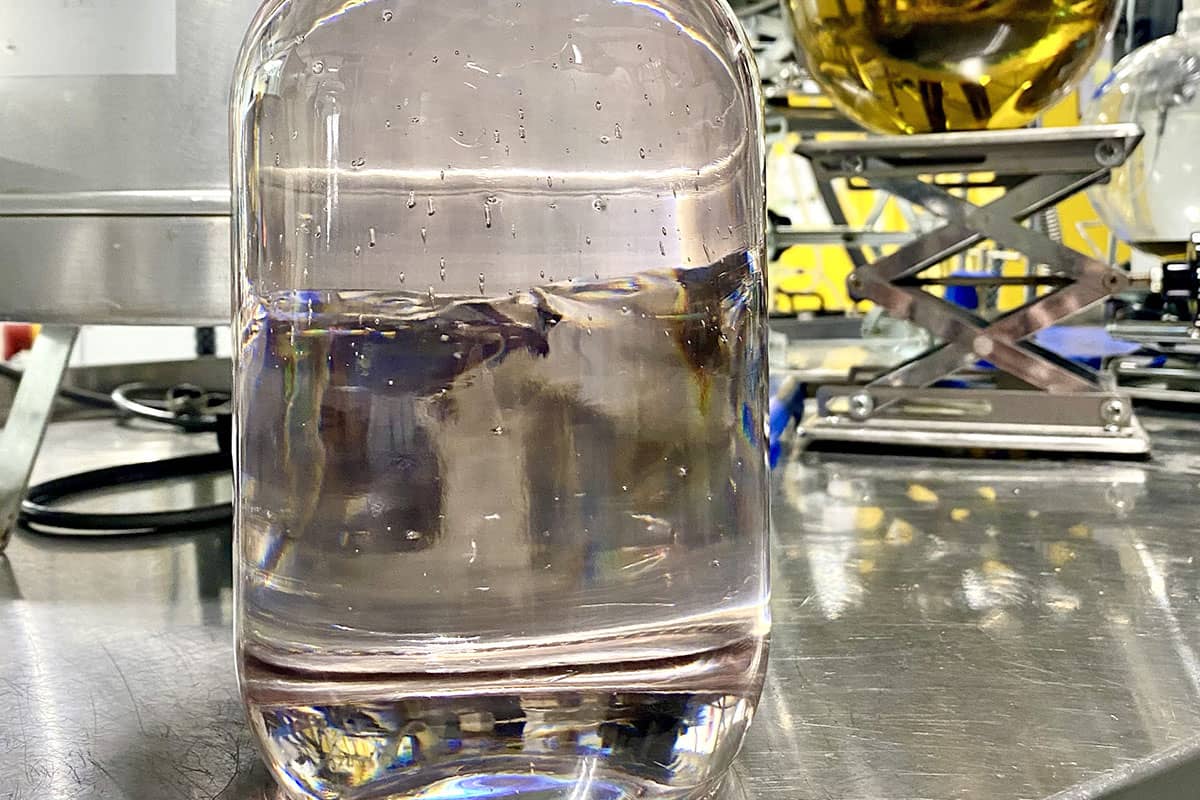(This story appears in the May-June issue of Marijuana Business Magazine.)
It seems everyone in cannabis has an opinion on delta-8 THC, a minor cannabinoid that exists rarely in nature but can be synthesized easily from CBD isolate.
It’s an isomer of the better-known delta-9 THC, and it creates milder psychoactive effects in many consumers because it doesn’t bind as readily to the body’s endocannabinoid receptors.
Some consider delta-8 THC to be a cheap knockoff of “real” THC and scoff at its medicinal potential.
One of the hemp industry’s best-known self-regulatory agencies, the U.S. Hemp Authority, recently announced it would not certify “potentially unsafe, intoxicating products” containing delta-8 THC.
Others warn that unregulated delta-8 THC is going to spark a federal crackdown and potentially threaten the decades of hard work that cannabis advocates have done to persuade policymakers that the plant has medical value.
These naysayers don’t bother Vince Sanders, founder and CEO of CBD American Shaman, the nation’s largest multistate cannabis retailer by store count.
Founded in Kansas City, Missouri, in 2015, the chain of 365 stores has locations in markets where hemp-derived products are the only legal cannabis options and states where adult-use marijuana is widely available.
The stores sell delta-8 THC products except in states that expressly prohibit the cannabinoid, such as Arizona.
Marijuana Business Magazine caught up with Sanders to find out which customers are asking for delta-8 THC and why he believes the cannabinoid belongs in the wellness conversation.
Why do you sell delta-8 THC?
It’s a great cannabinoid, therapeutically. We honestly see more pain management than even with (delta-9 THC). When you have somebody with pain issues, it’s amazing.
The other thing is, because it is not as psychoactive as (delta-9 THC), it’s really more therapeutic when it comes to pain management. You can kind of microdose and manage pain without so much psychoactivity. And really, if you start taking less than 10 milligrams, there’s very little—if any—psychoactivity there.
How do you describe delta-8 THC to customers?
We start out at the basic level. We explain that this is an isomer of CBD.
Then, you get into a little bit of chemistry. We say, look, there’s a group of carbon atoms. And in one place, there’s a double-carbon atom. We take that double-carbon, and we move that to a different place on the molecule.
To a novice or someone who doesn’t have a chemical experience, it looks exactly the same. There are just minor changes. It fits the (cannabinoid) receptor differently and produces a different effect.
Have you seen delta-8 THC cannibalize your CBD sales?
So far, there’s been no cannibalization. And I think that’s because we’re constantly teaching everyone in the store how things work, why they work and for what person. And if you’re using a CBD product and it’s working for you, there’s absolutely no reason for us to move you or even suggest another product.
Now, if you say, “This works great, but I still have a little bit of pain. I wish I could get rid of it.” Then we might start talking to you about a product like D-8.
This is such a hot item that a lot of people are walking in based on their own research and asking about it. And that’s why we explain how it works, why it works and how to properly use it. We give all the required warnings of, “Hey, unlike CBD, this is psychoactive. It does have these things that you may not be looking for or want.”
There is a perception that delta-8 products are a way in for consumers who cannot legally access delta-9 THC products. Does it sell better in places with limited access?
We aren’t seeing that yet, and I would have expected that. You’ll pick a state where there is nothing—like Kansas, where you don’t even have medical—and it’s selling really well.
But we’re seeing all the fields are very brisk. We’re seeing brisk sales in California and Oregon, in lots of states where (delta-9 THC) is legal.
Two things: I think it is being used more as a supplement than (delta-9 THC). I also believe that its availability and its price point and the effects of not being as psychoactive appeal to a larger audience.
Where do you think delta-8 THC fits in the cannabis wellness landscape? Will it ever compete with CBD?
As long as the government doesn’t take it away … long term, I see this being a very important cannabinoid.
There’s a lot of minor cannabinoids out there, and if we’re allowed to continue to do different isomers, who knows what we may come up with? But as of right now, I definitely see (delta-8 THC) as a very large market.
CBD has had a number of years to get up and going. D-8 is relatively new. You do certainly have therapeutic properties to (delta-8 THC). Long term, could it be as big as CBD? Nobody has a crystal ball, but sure.







